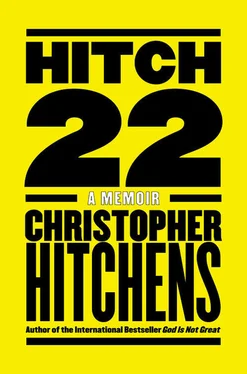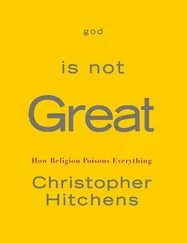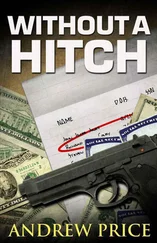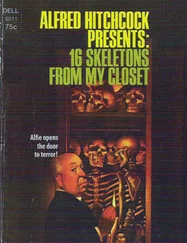However, the dress-shop business didn’t go well. If it wasn’t for bad luck, in fact, Yvonne would have had no luck at all. With various friends and partners she tried to float a store called Pandora’s Box, I remember, and another called Susannah Munday, named for an ancestress of ours on the paternal Hampshire side. These enterprises just didn’t fly, and I couldn’t think why not except that the local housewives were just too drab and myopic and penny-pinching. I used to love the idea of dropping by as I went shopping, so that she could show me off to her friends and have a general shriek and gossip over some coffee, but I could always tell that business wasn’t good. With what a jolt of recognition did I read, years later, V.S. Naipaul’s uncanny diagnosis of the situation in The Enigma of Arrival . He was writing about Salisbury, which was close enough to Portsmouth:
A shop might be just two or three minutes’ walk from the market square, but could be off the main shopping track. Many little businesses failed—quickly, visibly. Especially pathetic were the shops that—not understanding that people with important shopping to do usually did it in London—aimed at style. How dismal those boutiques and women’s dress shops quickly became, the hysteria of their owners showing in their windows!
I might want to quarrel with the choice of the word “hysteria,” but if you substituted “quiet desperation,” you might not be far off. Even years later, when the term “struggle” had become for me almost synonymous with the words “liberation” or “working class,” I never forgot that the petit bourgeois knew about struggling, too.
I am speaking of the time of my adolescence. As the fact of this development became inescapably evident (in the early fall of 1964, according to my best memory) and as it came time to go back to school again, my mother took me for a memorable drive along Portsmouth Harbor. I think I had an idea of what was coming when I scrambled into the seat alongside her. There had been a few fatuous and bungled attempts at “facts of life” chats from my repressed and awkward schoolmasters (and some hair-raising speculations from some of my more advanced schoolmates: I myself being what was euphemistically called “a late developer”), and I somehow knew that my father would very emphatically not want to undertake any gruff moment of manly heart-to-heart with his firstborn—as indeed my mother confirmed by way of explanation for what she was herself about to say. In the next few moments, guiding the Hillman smoothly along the road, she managed with near-magical deftness and lightness to convey the idea that, if you felt strongly enough about somebody and learned to take their desires, too, into account, the resulting mutuality and reciprocity would be much more than merely worthwhile. I don’t know quite how she managed this, and I still marvel at the way that she both recognized and transcended my innocence, but the outcome was a deep peace and satisfaction that I can yet feel (and, on some especially good subsequent occasions, have been able to call clearly to my mind).
She never liked any of my girlfriends, ever, but her criticisms were sometimes quite pointed (“Honestly darling, she’s madly sweet and everything but she does look a bit like a pit-pony.”) yet she never made me think that she was one of those mothers who can’t surrender their sons to another female. She was so little of a Jewish mother, indeed, that she didn’t even allow me to know about her ancestry: something that I do very slightly hold against her. She wasn’t overprotective, she let me roam and hitchhike about the place from quite a young age, she yearned only for me to improve my education (aha!), she had two books of finely bound poetry apart from the MacNeice (Rupert Brooke, and Palgrave’s Golden Treasury ), which I will die to save even if my house burns down; she drove me all the way to Stratford for the Shakespeare anniversary in 1966 and on the wintry day later that year that I was accepted by Balliol College, Oxford, I absolutely knew that she felt at least some of the sacrifice and tedium and weariness of the years had been worthwhile. In fact, that night at a fairly rare slap-up dinner “out” is almost the only family celebration of unalloyed joy that (perhaps because it was mainly if not indeed exclusively about me) I can ever recall.
It pains me to say that last thing, but the truth is that I can remember many nice country walks and even one epic game of golf with my father, and many good times with my brother, Peter, as well, and more moments with Yvonne than I can possibly tell about here. But like many families we didn’t always succeed in managing as a “unit.” It was better if there were guests, or other relatives, or at least a pet animal to which we could all address ourselves. I’ll close this reflection with a memory that I cannot omit.
We had been for a family holiday—I think it may have been the last one we all had together—on the Devonshire coast at the John Betjeman–style resort of Budleigh Salterton. I hadn’t thought it had been too tense by Hitchens standards, but on the last day my father announced that the men of the family would be going home by train. Yvonne, it seemed, wanted a bit of time to herself and was going to take the car and get home by easy and leisurely stages. I found I approved of this idea: I could see her cruising agreeably along in the roadster, smoking the odd cigarette in that careless and carefree way she had, stopping as and when it pleased her, falling into casual and witty conversation at some of the better hostelries along the roads. Why on earth not? She was way overdue for a bit of sophistication and refinement and a few days of damn-the-expense indulgence.
She was home the next day, with her neck in a brace, having been painfully rear-ended by some idiot before she had even properly embarked on the treat that was rightfully hers. My father silently and efficiently took charge of all the boring insurance and repair details, while Yvonne looked, for the first time I had ever seen her, deflated and defeated. I have never before or since felt so utterly sorry for anybody, or so powerless to assist, or so uneasy about the future, or so unable to say why I was so uneasy. To this day, I can’t easily stand to hear the Danny Williams version of her favorite “Moon River,” because it captures the sort of pining note that is the more painful for being inchoate. While shifting scenery at the Oxford Playhouse not long afterward (for one of the first wage-packets I ever earned) I saw a production of The Cherry Orchard from the wings—a good point of vantage for a Chekhov play, incidentally—and felt a pang of vicarious identification with the women who would never quite make it to the bright lights of the big city, and who couldn’t even count on the survival of their provincial idyll, either. Oh Yvonne, if there was any justice you should have had the opportunity to enjoy at least one of these, if not both.
She soon afterward gave me a black-tie dinner jacket as a present to take to Oxford, being sure that I’d need formal wear for all the Union debates and other high-toned events at which I would doubtless be starring. I did actually don this garment a few times, but by the middle of 1968 Yvonne had become mainly used to reading about my getting arrested while wearing jeans and donkey jacket and carrying some insurgent flag. I have to say that she didn’t complain as much as she might have done (“though I do rather hate it, darling, when my friends ring up and pretend that they are so sorry to see you on TV in that way”). Her politics had always been liberal and humanitarian, and she had a great abhorrence of any sort of cruelty or bullying: she fondly thought that my commitments were mainly to the underdog. For my father’s flinty and adamant Toryism she had little sympathy. (I do remember her once asking me why it was that so many professional revolutionaries were childless: a question which seemed beside the point at the time but has recurred to me occasionally since.) Unless the police actually came to the house with a warrant—which they did, once, after I had been arrested again while still on bail for a previous offense—she barely uttered a moan. And I, well, I was impatient to outgrow my family and fly the nest, and in the vacations from Oxford as well as after I graduated and moved impatiently and ambitiously to London, I didn’t go home any more than I had to.
Читать дальше











